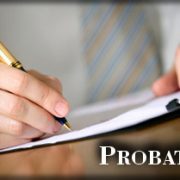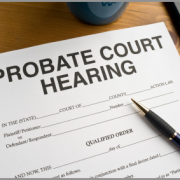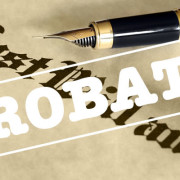QDOT – What is it and should I have one?
Cleveland, Ohio estate planning attorney, Daniel A. Baron, offers information on a Qualified Domestic Trust and the benefits realized from including this as part of your Tax and Estate Planning:
The specific goal of a Qualified Domestic Trust (or QDOT) is to defer Federal Estate Tax on assets which are transferred from a spouse who is a US Citizen upon their death to the other spouse who is not a citizen of the US. If your marriage consists of both a US Citizen and a non US Citizen and your assets are minimally several million which the non US Citizen spouse has the possibility of inheriting, it would be wise for you to secure a Qualified Domestic Trust.
What are some of the tax issues for spouses who are not US Citizens?
In the absence of Qualified Domestic Trust the non-citizen spouse now has to pay Federal Estate Tax on any assets transferred from the US Citizen spouse into the non-citizen spouse’s name, just as any other party who inherits assets from any other person when they pass.
What happens when no Qualified Domestic Trust exists and the spouse who is the
US Citizen passes away first?
If the surviving spouse is a non-citizen of the US, then as stated previously, Federal Estate Taxes will need to be paid on any assets which transfer to the surviving spouse. The surviving spouse would not have the unlimited Marital Deduction as it is should both spouses be US Citizens. Paying the Federal Estate Taxes is the government’s way of collecting taxes so that the non-citizen spouse does not take all the assets back to their native country and avoid paying the necessary taxes.
There are two avenues which could be taken to avoid paying any inheritance tax:
- Become a US Citizen
- Set up a Qualified Domestic Trust
There are a number of requirements however set forth for set up a Qualified Domestic Trust after the spouse who is a US Citizen passes away, but it can be done. If your family situation is such that one spouse is a US Citizen and the other is not and has no intention of becoming one, it would be most advantageous for you to contact an Estate Planning Attorney to set up a Qualified Domestic Trust while you are both still living and of sound mind.
For more information on setting up a Qualified Domestic Trust as part of your Estate and Tax Planning, contact Daniel A. Baron of Baron Law to maximize your Federal Estate Tax savings upon your passing at 216-573-3723.






